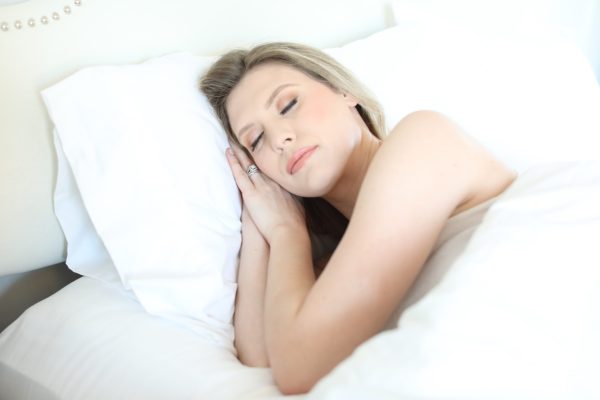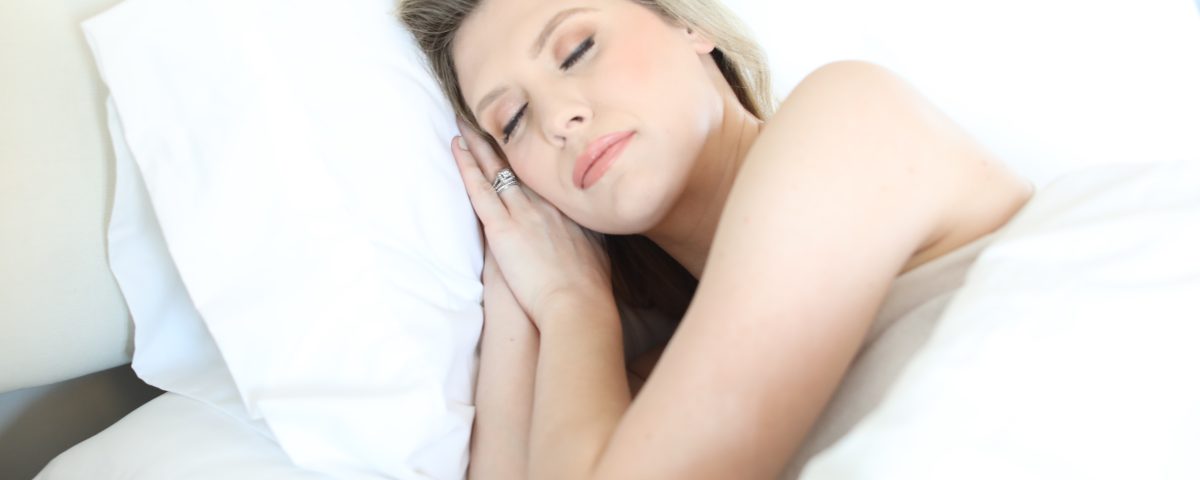Sleep is a big deal. Are you looking to figure out how to stay asleep all night? Or, how to sleep better in general? In this article, I want to walk you through 15 important tips that can teach you how to get better sleep sooner than later.
- Have any questions?
- 480-631-7837
- support@in-goodhealth.com

Thriving After Thyroidectomy with Patricia Pomareda
May 29, 2023
Heal Your Gut & Eliminate GI Issues
May 31, 2023
Thriving After Thyroidectomy with Patricia Pomareda
May 29, 2023
Heal Your Gut & Eliminate GI Issues
May 31, 2023Recommended Product: DrC’s own formulation. RS Complete contains two forms of resistant starch (RS) type II: organic green banana flour and organic potato starch powder. RS is a type of starch that is resistant to digestion, as enzymes in the GI tract are inactive against it. Click Here
Why Does Sleep Matter?
Throughout the day, our bodies put out a lot of energy. To balance this out, we rely on sleep to repair ourselves after putting out all that energy. This comes down to our immune response and our ability to detoxify and repair our damaged tissues.
All those repairs happen at night, and they happen while we are sleeping – especially during those deeper stages of sleep. If sleep is not happening, or not happening like it should be, your body is not being given that opportunity to repair at all.
We also know that quality of sleep influences how we store fuel, which has further influence on a whole host of situations. This can have an effect on:
- Weight
- Alertness
- Energy
- Digestion
In general, though, how common are sleep problems? One survey found that anywhere between 30-60% of American adults have one to two poor nights of sleep every single week!
Key Insight: Most people are not getting enough sleep, and it can have a detrimental effect on things like our weight, energy levels, and so much more. In this article, I want to teach you some tangible ways you can get better sleep.
1. Limit Your Caffeine Intake
This is a tricky one – and don’t get mad at the messenger. Because while caffeine is harmless for many people, it can be an issue for some.
Genetically speaking, some people do not tolerate caffeine very well. Usually, they work that out themselves – they know to mostly avoid it.
What is trickier is that how we tolerate caffeine can change over time.
There is something called “hepatopause” that we need to know about. This is where our liver function changes as we age, and we become less able to readily get rid of caffeine in our systems.
Key Insight: For some, it may take up to 24 hours for caffeine to fully leave your body. So, if you have a coffee once a day, there is a chance that caffeine is permanently in your system – all of the time! And, it builds up over time.
This can all affect how quickly you fall asleep and the overall quality of your sleep. You may need to consider limiting your caffeine intake to get a good night’s sleep.
The only way to know if it is affecting you is to stop using it.
You may want to try a three-week challenge of removing caffeine from your life, and seeing if you have a difference in sleep quality. The end of the three weeks will tell you everything you need to know.
But, it does not mean that you need to eliminate caffeine from your life forever. If it is a big factor for you, you may want to watch out for it – consider taking weekly or daily breaks from caffeine.
2. The Same Goes for Alcohol
Much in the same vein as caffeine, alcohol is also not good for our sleep.
While you may fall asleep due to alcohol, it is not the same as getting real, quality sleep in your system.
Key Insight: Alcohol may be better able to “knock you out,” that does not directly translate to better sleep. In fact, the sleep you are getting can be far worse.
This is true for all types of alcohol, including wine and its purported health benefits. The trouble is that people often get themselves on a dangerous seesaw of caffeine and alcohol. They have a cup in the morning to get started and another to take them into sleep. It’s a vicious cycle.
The same as caffeine, take a break from alcohol and see how you sleep. Three weeks is always going to be a good barometer to see how you sleep. And, if you even find yourself resisting the idea of avoiding it, you should really take that to heart and think about it.
3. Resistant Starch (RS)
There is a relationship between glucose and sleep, and Resistant Starch (RS) is the first one.
What happens is that our blood glucose, our blood sugar, is fluctuating throughout the day. After meals, it can typically elevate. But, when we take long gaps between meals, we need to keep it in control through internal mechanisms.
One of those mechanisms is a stress hormone called cortisol. Normally, we make a big burst of cortisol to get us out of bed. That is completely normal.
The trouble occurs when we make a bunch of it in the middle of the night, and we wake ourselves up! Our bodies feel like it is the morning, even when it’s not.
When blood sugar levels drop off, our bodies may release that big burst of cortisol to raise the blood sugar back up again. If you were asleep at this point, it would most likely shoot you awake.
Key Insight: The more steady your blood sugar remains throughout the night, the more likely you are to stay asleep and enjoy your sleep.
Resistant starch is a bit between fiber and carbohydrates. Like fiber, it gives fuel to good bacteria. Like carbohydrates, we get some energy from it, too. Unlike carbohydrates, though, we only get the energy after the good bacteria are done with it.
What that means is that the fuel yield into our bloodstream is very slow (somewhere between 7-9 hours). If we have a serving of resistant starch later in the day, we have a long period of time where we are receiving a gentle influx of blood glucose (no spikes and crashes).
We can get resistant starch from these big sources:
- Potatoes (boiled, then chilled)
- White Beans
- Green Bananas
Potatoes retain resistant starch when they are cooked at lower temperatures. That is why boiled potatoes are best for resistant starch intake. This does not apply to sweet potatoes, though.
White beans are highest in resistant starch. This also includes navy, northern and cannellini beans.
Bananas have more resistant starch when they are less ripe. So, if they have less yellow and brown on them, that means they are higher in resistant starch.
4. Cutting Out Processed Sugar
The same way that resistant starch does a good job of stabilizing our blood sugar, foods that have a lot of processed sugar make a mess of our blood glucose levels.
Here, I want to differentiate between processed sugar and healthy carbohydrates. There is amazing data showing that we need healthy carbohydrates for a lot of good reasons, but processed sugar is simply not the same.
Good carbohydrates may include potatoes, brown rice, yams, pinto beans, fruits, these are all healthy foods to include in our diets. But, things like:
- White sugar
- Sodas
- Candies
These are not our friends, because they will not allow for our blood sugar to remain steady. This can have a detrimental effect on our sleep.
5. Exercise At Least 30 Minutes a Day
The earlier that we exercise in the day, the better it is for our sleep.
If you train too hard before bed, you may inadvertently elevate your cortisol when it should be winding down.
The data is so strong here. Exercise can have a massive impact on sleep quality, and the reason boils down to our fight-or-flight response.
Our bodies are very quick to go into fight-or-flight mode. But, we very rarely end up having to fight or run away – they are things we think through or talk through.
This leads to our bodies losing that ability to know that the stressor has gone – they remain in that mode until we physically engage in a fight.
For that reason, exercise is almost like an artificial fight. It allows your body to react correctly to that fight or flight response, and helps us hit reset on the response.
Key Insight: Train hard earlier in the day, ideally 30 minutes, and embrace any kind of exercise. The best return for sleep will be moderate-to-high intensity aerobics.
6. Enjoy Some Daily Sunlight
Especially first thing in the morning.
Our bodies rely on a daily circadian rhythm. We need to have this rhythm reset, because it drifts over time. The main cue we use for this is morning light.
When we live inside, we turn on the lights to wake us up. While it is nice, it is most certainly not the same as the sun. We need a certain type and intensity of light.
The solution is to go outside during the first hour of the day (ideally a half hour). If that’s not possible, perhaps in winter, you may want to invest in a light box.
7. Darken Your Room
Bright light in the morning is good, but so is a dark room at night.
This is also a huge cue for our brains when it comes to endogenous melatonin production.
Ideally, you will want to start dimming your lights an hour before bed. And, while you are sleeping and in bed, you will want it to be as pitch black as possible.
You may want to invest in blackout curtains, maybe cover the lights projected from some of your devices, or wear an eye mask for guaranteed protection!
8. Turn the Thermostat Down
Make your bedroom colder at night.
Your body is adapted to an environment that is very different from the ones you live in now. We are adapted to living outdoors, living through the changes of seasons, and also with a temperature change – being colder at night is natural.
If the air temperature is always the same, our bodies have a hard time knowing that it is time to sleep. So, to get the best sleep possible, you will want to lower your room temperature by at least five degrees. Ideally, this would happen an hour before bed.
9. Use a White Noise Machine
Especially for light sleepers, some kind of white noise can be super helpful.
If you have a heater or an air conditioner going, this can already be a good start. An air filter can also be a nice addition to your room, or a white noise generator or fan.
The one thing you will want to avoid is air blowing directly on your face. The idea is to mask more background noise so that you can really focus on your sleep.
10. Use Earplugs
Along the same lines as a white noise machine, you may want to invest in some earplugs.
This is also very handy if you are sharing your bed with someone who may snore or make various noises in the night. It can take the idea of white noise up a level.
(I love my wife Kirin, but let’s just say I sleep a lot better with earplugs! And yes, she gave me permission to share that)
There are a lot of great options when it comes to earplugs. Mainly, you will want ones that sit flush with your ear. It may take some time to get used to them, but it can become a very healthy part of your nighttime routine.
11. Consider Your Thyroid Levels
Any time that your thyroid levels are askew, it can affect you in countless ways.
One of these ways is with regards to your overall sleep quality.
You may be struggling with:
- Too much hormone
- Too little hormone
- Thyroid autoimmunity
- The wrong medication
- Changes in medications
All of these things could be relevant. It helps to stay on top of your thyroid levels, and determine if they are getting in the way of your nightly rest.
Key Insight: You want your thyroid levels dialed in for numerous reasons, and sleep is one of them. Make sure you have a decent grip on your optimal thyroid levels.

12. Start Journaling
Or do a ‘brain dump’ and write down everything on your mind!
You can journal throughout the day or at bedtime. If you are doing it in bedtime, you want to do it in a way that avoids screens or electronics. During the day, though, there are a lot of great applications you can use to journal.
How does it help, though?
It turns out that our brains physically store stress throughout the day, and this can have a huge impact on how we sleep. But, we can take that stress and deconstruct it by putting it into words – and, subsequently, onto paper.
Talking can work, as well, but for some things it makes total sense to journal. Don’t think too hard about it and just let your feelings flow! It can really help you sleep.
13. Put Your Phone Down
No, really. Step away from your phone.
Initially, we thought that the color of the light on our phones was keeping us from sleeping well. So, a lot of devices will now change in time with the day.
Turns out it wasn’t that.
Instead, it’s the fact that you’re on your phone and your brain is active when you should really be sleeping!
Mental stimulation is a huge issue, especially the last hour before bed. Put the phone down and give your body the opportunity to really wind down and get comfortable.
It’s a great time to dim the lights, read a physical book (there are even some great e-readers that don’t have background lighting), and get comfortable before bed.
14. Try Progressive Muscle Relaxation
Tense, then relax.
This is a deliberate way of removing tension from our bodies, which also helps us remove the tension from our minds before bed.
Basically, you go through your body, toe to head, and choose muscle groups and contract them (hold them tight) and relax them.
Take your hands for example. Take a deep breath in, hold your hands really tight, and then relax them, and exhale them. You essentially do that across your entire body.
All it takes is a couple minutes, but it has a huge benefit when it comes to releasing background muscular tension across your body. This can help you sleep better.
15. Having A Schedule
Consistency is everything, and that also applies to sleep.
You want to ensure that your sleep is happening at a recurrent, regular time. Without that, the body doesn’t know when sleep is going to happen and this can get in the way of falling asleep.
The top priority should be waking up at the same time. The pitfall is that it can be quite tempting to sleep in on different days, like the weekend, and this can completely disrupt the entire rhythm. You want to get up at the same time, every single day.
The second priority should be having a morning meal. Eating a solid meal in your first hour of being awake is huge. Thirdly, though, is having that consistent wind-down process and pre-bed ritual to help get you into the mood for sleep.
16. Eat Melatonin-Rich Foods
Yes. Foods have melatonin.
In fact, plants make it for the same reasons that we make it – using melatonin to adjust the rhythms between day and night. So, you may want to consider eating some melatonin-rich foods.
When we eat it, it also helps us make it. And, it doesn’t need to be timed like supplements, which is a nice benefit. Consider some of the top sources:
- Pistachios
- Black cherries
These are great foods and easy to work in throughout the day. In general, the more often you have those the better your body can do with melatonin production.
Stay Asleep Longer Today
The above is a list of a lot of great tips you can try to get better sleep. Overall, though, I really want to hammer home the importance of sleep for our wellbeing. Again, it can help us with our energy levels, our weight, our mood, and our alertness.
There is literally no one that can get by without any sleep. We all need it! A lot of folks have problems sleeping, but we know that the majority of these problems can be solved by simple behavioral tricks. In fact, medications don’t help much at all.
I hope you found this helpful and I hope it results in better, faster and higher-quality sleep. Rest easy!

P.S. Whenever you are ready, here is how I can help you now:
- Schedule a Thyroid Second Opinion with me, Dr. C, Click Here for Details
- Need help to choose supplements? Click ‘Help Me Decide Here'
- Get my top books Here
Dr. Alan Glen Christianson (Dr. C) is a Naturopathic Endocrinologist and the author of The NY Times bestselling Hormone Healing Cookbook, The Metabolism Reset Diet, and The Thyroid Reset Diet.
Dr. C’s gift for figuring out what works has helped hundreds of thousands reverse thyroid disease, heal their adrenals, and lose weight naturally. Learn more about the surprising story that started his quest.







